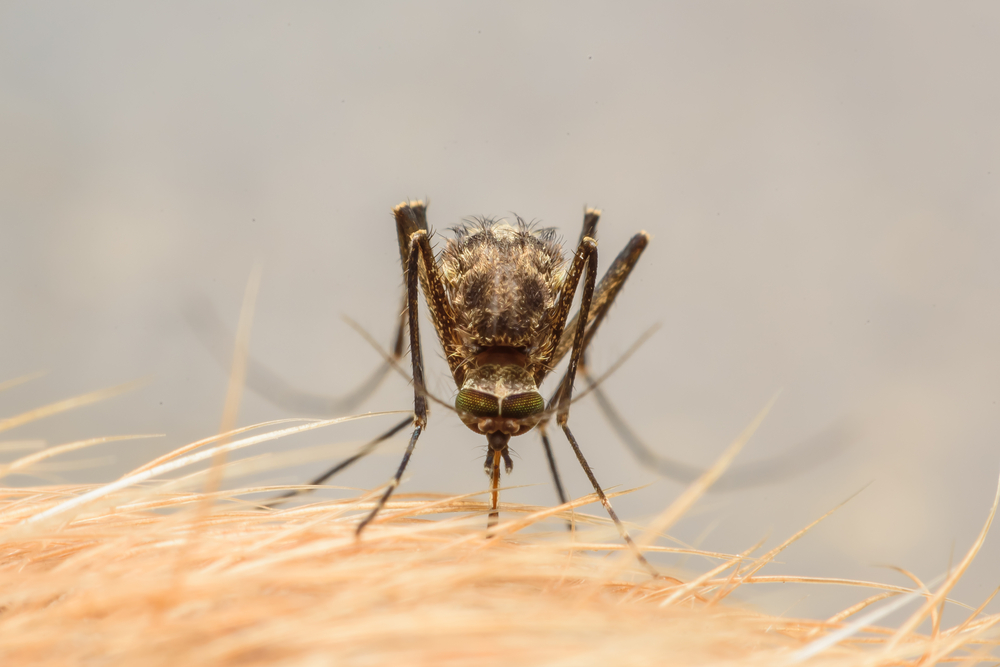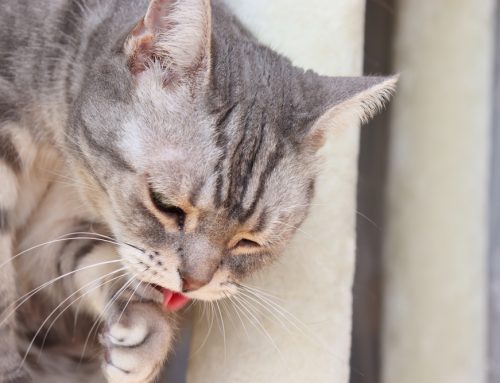Heartworm infection is often considered a summertime illness, but this potentially life-threatening disease can strike your pet any time of year. This serious condition affects mostly dogs but has been diagnosed in cats and other small mammals. Caused by parasitic worms called Dirofilaria immitis, heartworm disease is contracted through the bite of an infected mosquito and can be life-threatening, so prevention is crucial. Our Tidmore Veterinary Hospital team explains heartworm disease, its signs, and how you can protect your four-legged friend.
Heartworm disease 101
Heartworm disease primarily affects the cardiovascular system—an infected mosquito that bites your pet transmits microscopic heartworm larvae (i.e., microfilariae) into their bloodstream. The larvae take six to seven months to reach the pet’s heart, lungs, and blood vessels, where they mature into adult worms up to a foot long. The adult worms can live for seven years inside your pet’s body, damaging their major organs and sometimes leading to heart failure. Dogs are considered natural hosts and are more often diagnosed with heartworm disease, whereas cats are atypical hosts, meaning the heartworms cannot complete their life cycle in their bodies. However, the larvae can still significantly damage infected felines.
Heartworm disease signs in pets
Heartworm disease signs can vary depending on infection severity. In dogs, common signs may include:
- Coughing
- Difficulty breathing
- Fatigue
- Reduced appetite
- Weight loss
Cats can show signs that include:
- Coughing
- Vomiting
- Lethargy
- Sudden collapse
In some cases, pets may not show any visible signs until the disease has progressed significantly, making regular preventive measures essential.
How to prevent heartworm disease in pets

The good news is that this dangerous infection can be prevented by taking the following measures:
- Maintaining your pet’s monthly heartworm medication — Our Tidmore Veterinary Hospital team recommends monthly heartworm preventives that are available as chewable tablets, topical solutions, or injections, and we can help you choose the best option for your pet based on their lifestyle, age, and health status. These medications are highly effective in killing heartworm larvae and preventing the development of adult worms.
- Scheduling regular wellness exams — During these exams, our veterinarian will monitor your pet’s ongoing health and screen your pet for heartworms, as well as other parasitic and infectious diseases. Early detection is critical to ensure a better prognosis and should your pet be heartworm-positive, our veterinarian will develop a heartworm treatment and prevention plan.
- Using mosquito control — Minimize your pet’s exposure to mosquitoes by keeping them indoors during peak mosquito activity hours, such as dawn and dusk. Also, use mosquito repellents designed specifically for pets and eliminate standing water around your home, including bird baths and water features, that mosquitoes use for breeding. Additionally, remove mosquito habitats by keeping a tidy yard, pulling weeds and tall grasses, and trimming shrubs.
- Maintaining year-round parasite prevention — As the climate keeps warming, mosquitoes no longer go completely dormant during the winter months. Heartworm disease is now diagnosed in pets any time of year in all 50 states, making prevention necessary throughout all seasons and regions. So, never skip a month of your pet’s preventives, because that puts them at risk of contracting heartworm disease. Remember—only one mosquito bite can infect your furry friend.
- Discussing travel with our veterinarian — If you are traveling with your pet, keep in mind that, depending on your destination, your pet may be at an increased risk for an infectious illness. Some regions have parasites distinct to the area or higher rates of specific contractible illnesses. Talk to our team about your travel plans, so we can tailor a parasite prevention plan based on your pet’s possible exposure.
Heartworm disease poses a significant, possibly life-threatening, danger to your pets’ health and well-being, but understanding the risks associated with heartworm infection and taking preventive measures can protect your pet from this disease. Consult our Tidmore Veterinary Hospital veterinarian to develop a heartworm prevention plan that meets your pet’s specific needs. Together, we can ensure your pet leads a long, healthy, heartworm-free life.








Leave A Comment